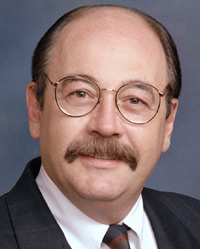“Sleep well.” “Get a good night’s sleep.” “Let me sleep on it.” Common advice and expressions attest to the importance of sleep. Here, director of Mayo Clinic’s Executive Health Program, Michael A. Covalciuc, M.D., M.P.H., discusses how catching zzz’s is vital to one’s health.

The amount of sleep needed varies by individual. Many people require seven or eight hours per night. For others, as little as six or as many as 10 hours are needed. The amount of sleep that you need is the amount that makes you feel alert during the day without drowsiness or excess fatigue.
Sleep is a complex process comprised of different stages that make up the sleep cycle. Sleep represents part of your body’s daily 24-hour rhythm, along with variations in body temperatures, various hormone levels and metabolic processes. Disrupted or poor quality sleep is caused by many things including:
- Caffeine-containing medications or drinks and some medications used to treat high blood pressure, asthma or emphysema.
- Alcohol.
- General changes in health, like menopause with hot flashes in women or an enlarged prostate in men requiring frequent nighttime urination.
- Life stresses, depression and anxiety.
- Other problems like restless legs syndrome or leg cramps.
Snoring is a common condition. Some studies suggest up to 50 percent of men and 25 percent of women over the age of 50 snore. If snoring disrupts your sleep or if you have daytime fatigue, sleepiness or other symptoms, you may have sleep apnea, a serious disorder where oxygen levels fall in your blood during sleep.
Some older studies have found that 67 percent of American adults have some type of sleep problem, and 37 percent of Americans say daytime sleepiness interferes with daily activities. If you feel you have a sleep problem, discuss it with your physician, particularly for potentially serious problems like sleep apnea. If you think that your medications may be a factor, talk to your doctor before stopping or changing the dose. Educate yourself by reading about sleep (“No More Sleepless Nights” by Peter Hauri may be helpful) and record your sleep patterns and symptoms to review with your physician. If you are concerned about your sleep, sleep on it and talk to your physician.
Have health questions? Send your questions to This e-mail address is being protected from spambots. You need JavaScript enabled to view it for answers.

Michael A. Covalciuc, M.D., M.P.H.
Director, Mayo Executive Health Program
For more than a century, Mayo Clinic has given patients peace of mind knowing they received care from the world’s leading experts. Since opening in Arizona in 1987, Mayo Clinic continues its tradition of a team of specialists listening to thoroughly understand and find the answers to patients’ health issues and concerns. Mayo Clinic’s Executive Health Program combines Mayo’s diagnostic expertise with the latest in preventive medicine for an individualized, thorough and expedited healthcare evaluation. To schedule an appointment, please call (480) 301-8088 or email: This e-mail address is being protected from spambots. You need JavaScript enabled to view it . For corporate information, please contact Andrea Knapp at (480) 301-4864 or This e-mail address is being protected from spambots. You need JavaScript enabled to view it .
